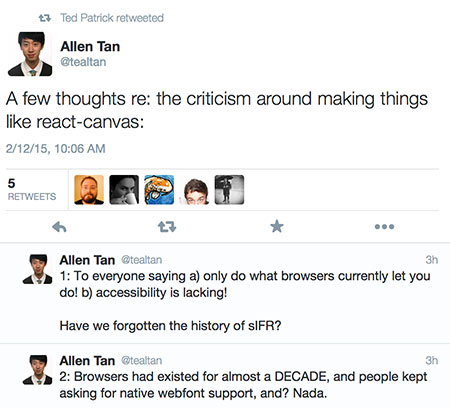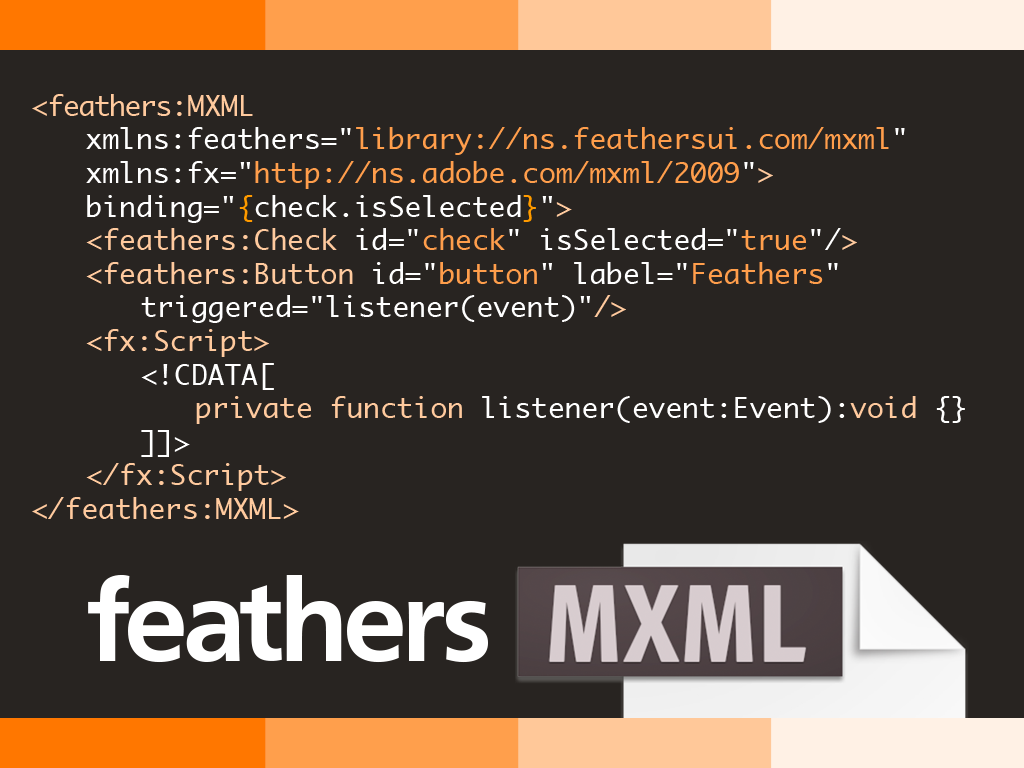Recently, I’ve been noticing that some people on Twitter have been posting strings of multiple related tweets about a single subject. Maybe these have caught your attention too. They’re like little blog posts where the authors can go beyond the 140 character brevity enforced by Twitter. It’s an interesting hack of Twitter’s restrictions that is both clever for helping you talk to your audience a little more in-depth, but it’s also annoying because a single author can dominate your feed.

The first thing I do after publishing a new post on my own blog is post a link to it on Twitter. A lot of my blog’s traffic comes from my followers and their retweets. Similarly, for me personally, Twitter is a wonderfully valuable resource for reading material. Twitter helps me stay up-to-date on the latest news about my favorite technologies, and it helps me keep my audience up-to-date about my personal projects.
A blog requires a certain amount of maintenance. If I install WordPress or something like it on my website, I need to keep it updated. Even if someone else hosts everything for me, I still feel an obligation to post often enough to keep a formal blog. All too frequently, blogs are set aside while we focus on the other work. After a while, we feel guilty, and it becomes too easy to abandon them because we’re a little embarrassed.
Today, I don’t blog as often as I did before Twitter was introduced. It’s easy to feel satisfied from sharing an informal opinion with a quick tweet. At least I said something – even if it’s only 140 characters long. Many of those tweets deserve to be expanded, with a deeper look at the subject, but a quick tweet or two is more convenient. I think these strings of tweets are scratching the blogging itch for many authors, while keeping things a little more informal.
Twitter is about bite sized content, though, and I can’t help but feel like the author is being rude by posting many tweets in succession (even if it’s interesting content that I would otherwise enjoy). It’s a little spammy when someone takes over my feed like that. Many people on Twitter follow many different sources, and we scan through a lot of dirt to find the gems. I love that I have the choice to dig in if I’ve been hooked by a good title or summary, but I can quickly bypass something that doesn’t sound interesting. Multiple tweets in a row from the same author force me to briefly dig in when I don’t necessarily want to.
Authors can benefit from staying within the Twitter ecosystem. That’s where their audience is finding content, so make it convenient for the audience to read your content. Twitter benefits from people staying within the Twitter ecosystem because those people aren’t going elsewhere. However, the 140-character format required by Twitter doesn’t work very well with the type of content that some authors want to write. I think that Twitter can fix this missing piece, though.
Embrace and encourage common behaviors
Twitter should embrace how people are posting strings of related tweets, and how bloggers share links to their posts on Twitter. People want to say more to their audience than Twitter allows, and it seems that some prefer not to leave in order to say it. The company should be asking itself how it can serve that content directly within the Twitter app and website. The more time people spend on Twitter, the more the company benefits.
How do people share interesting articles (their own or written by others) on Twitter? They usually post the title (or a quote) along with a link. How are blog post editors usually designed? Two separate text boxes. One for a title and the other for the body of the post. Wouldn’t it be easy to limit the title to 140 characters? That’s enough to fit into a tweet. All Twitter needs to do is give a blog post some kind of special decoration to show that this tweet includes more content. Anyone who is interested can simply tap or click to read it. A simple button at the beginning and/or end of the post can bring you back to the main feed where you left off.
How these blog posts integrate with Twitter as we know it today is important. The 140 character limit is also one of Twitter’s best features. The full body of a blog post wouldn’t appear on someone’s main feed. It wouldn’t take up more space than a regular tweet. What we see in our feeds are the titles, limited to 140 characters. It will be clear that there’s more to read, but you see the full text only if you want to read it. It becomes the best of both worlds.
Comments and retweets
Commenting is available for free, of course. Anyone would be able to reply to a blog post with a regular tweet. Twitter could go a step further and allow a reply to a blog post that is another blog post. Many people complain that Twitter only allows shallow discussions because you’re limited to 140 characters, and it’s hard not to speak bluntly. With a longer blog format, discussions can be more subtle and go into more depth.
Often, someone sharing an article wants to quote part of it that is especially relevant. Retweeting a Twitter blog post doesn’t necessarily have to be limited to the title that the original author chose. What if you could pick a quote in the middle and retweet that instead of the title? A retweet with a quote would still open up the same full-length blog post, but you’d be tailoring the article to more closely match your audience’s interests.
But what about…?
In the past, companies have tried to provide products that would let you post longer tweets. Obviously, they weren’t all that successful. However, if blog posts were natively integrated into Twitter, I believe that many would embrace them. By making it easy to share and discuss (with retweets and longer replies), and by making it easier to go back and forth between blog posts and back to the feed, the smoother and more engaging experience would allow Twitter to succeed where others couldn’t, in my opinion.
The main issue that Twitter would need to address is people abusing these new blog posts for short tweets that they’re too lazy to edit down to fit within 140 characters. A Twitter feed filled with a bunch of 150 character blog posts would get annoying real fast. Maybe a blog post would require a minimum number of characters, like 500-750. Enough that 4-5 regular tweets would have been needed to fit all of the text.
For a better Twitter
While I’ve frequently talking about keeping the main feed on Twitter looking mostly the same, I think that adding blogging would still change the way that Twitter is used overall. Some people today say that they don’t “get” Twitter. More in-depth content would help reveal the hidden value of this service. Discussions are currently artificially limited. They’re shallow and lack subtlety. I think that this change would encourage people to talk to each other more instead of simply promoting themselves. It would clear up common misunderstandings caused by Twitter’s communication barriers. For those of us that like blogging, I think it would encourage us to do it more. We’d feel less guilty when we don’t blog for a while because blogging would become a part of the same service we visit daily. We’re frequently on Twitter, so we haven’t abandoned anything.


 Image Credit:
Image Credit: